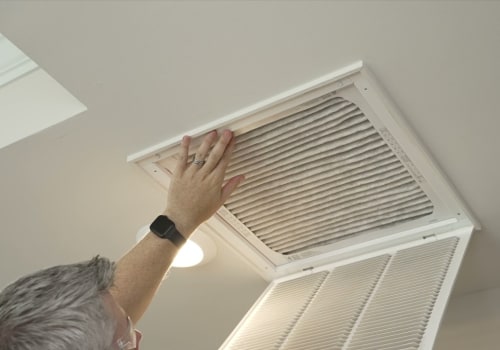Restricted airflow can decrease comfort, reduce energy use, and accelerate wear and tear on HVAC components. In particular, using an air filter with a MERV rating that is too high can damage the compressor, heat exchanger, and air conditioning coil. While the highest MERV ratings are the most effective for air quality, they can be detrimental to your HVAC system. If you want to remove more material from the air, you can use a filter with a different material.
The pores in these filters are much smaller, allowing the filter to trap more contaminants from the air stream, but it also adds more resistance. Higher MERV filters have greater resistance. Have you ever felt your lungs work harder when you wore a mask? Well, a filter with a MERV rating too high to handle will cause the lungs of the boiler or air conditioner to work too hard. A common result is that the engine wears out prematurely. Good luck with your decision to use superior MERV filters in the future.
Of course, they are not a bad thing. Reducing the amount of dirty particles in the air in your home is a very common request. It's only important to ensure that the rest of the system is configured to withstand the increased restriction created by filters. When washing an alcohol, you could very well be creating some strange and fun chemicals, unless you're just washing cotton. So, I would suggest using sunlight to disinfect them instead.
Even that could break the high Merv filters a bit and release unwanted, perhaps dangerous chemicals. De-gassing an activated carbon filter with high Merv content could be your best bet between you and any other exotic chemical action you have going on. These scales have different ranges than the MERV rating, but are generally measured based on similar factors. A MERV 13 filter is likely to help if the goal is to prevent droplets from passing through. In addition, a MERV 12 filter that is only 1 inch (one inch) thick is likely to be more restrictive than a 4 (four inch) thick MERV 12 filter. Offices have a variety of Merv filters and HVAC systems use Merv filters; in both cases, they don't use fiberglass.
Finally, I say that peace of mind is priceless and that if they think that a high MERV filter would work for them, they should do so with the caveat that they must replace dirty filters frequently enough (26%), it can be a week or two, depending on the MERV index, the effective area of the filter and the amount of particles that enter your home. While you might automatically think that a higher MERV rating means a better air filter, that's not always the case. Filters with a MERV rating of 8 to 13 are usually high-end filters for domestic use or high-quality commercial filters. The highest MERV rating means that an air filter will capture the most dust, while the lowest rating means that the filter will capture the least amount of dust. While the air filter is designed to control the amount of unwanted air particles entering your home, your filter's MERV rating serves to show you which filter is best suited for your home. In 1987, the American Society of Heating, Refrigerating and Air Conditioning Engineers designed the MERV rating scale to provide a more accurate picture of an air filter's capabilities.
If the boiler's MERV rating is too high, it can force it to work too hard and be exposed to damage. In conclusion, it's important to remember that while higher MERV ratings are great for improving air quality in your home or office space, they can also cause damage to your HVAC system if not used correctly. Make sure you understand what type of filter you need for your system before making any decisions.




